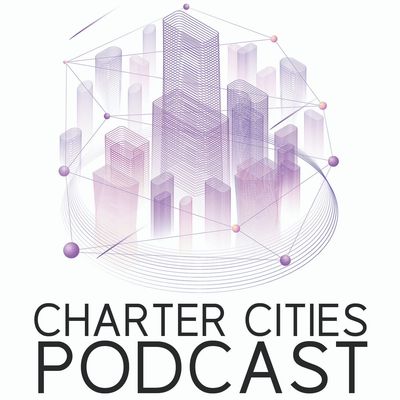The Charter Cities Podcast explores how charter cities can help solve some of the largest challenges of the 21st century, from urbanization to global poverty to migration. Each episode Mark Lutter interviews experts in international development, new cities, finance, entrepreneurship, and governance, to develop a better understanding of the various aspects of charter cities If you want to learn more visit the Charter Cities Institute at https://www.chartercitiesinstitute.org/
https://www.chartercitiesinstitute.org/
episode 37: e-Residency in Estonia with Lauri Haav
At the beginning of 2021 Lauri Haav altered his career path from the world of tech startups to the realm of government. This might sound like an incongruous move, but the Estonian government is more advanced than most countries in terms of its level of digitization and its embracing of technology, and Lauri is currently running a program which is the first of its kind. Almost 7 years ago Estonia launched their e-Residency program; this means that almost anyone, almost anywhere in the world, can become an e-resident of Estonia. Currently, if e-residents were a city, they would be the third biggest city in Estonia! If you’re wondering why obtaining an Estonian e-ID card is an appealing option, you’ll get all the answers in today’s episode. We also discuss the various reasons why the Estonian government is so ahead of the curve in terms of digitization, how they have assisted their population in making the transition to digital platforms as seamless as possible, challenges that they have experienced, and what they hope to achieve in the coming years.
Key Points From This Episode:
• Estonia’s advanced level of digitization, and what their e-Residency program is.
• Lauri shares what his professional background in the tech space consisted of.
• Similarities and differences between working in technology companies and working for government organizations.
• Factors that resulted in the Estonian government’s early embrace of the internet.
• How Estonia’s approach to electronic ID cards differs to most other European countries.
• Lauri explains the mechanics of an E-ID card.
• Estimated percentages of the Estonian population who make use of Estonia’s various E-platforms.
• Ways that Estonia ensures their e-Platforms are secure and their approach to privacy.
• How the Estonian government attracts talent to its technology department.
• Some examples which highlight the constraints of some traditional procurement processes.
• The value of working in different types of organizations.
• Challenges that come with the growth of an organization or department.
• An e-Government program that was drastically accelerated as a result of the COVID-19 pandemic.
• Two main reasons that people will sign up for the Estonian e-Residency program.
• The percentage of new businesses in Estonia over the past 3 years that are owned by e-Residents.
• How the government is going to determine whether or not the e-Residency program is beneficial to Estonia.
• Technology that underpins key public infrastructure in Estonia.
• Countries which are following in Estonia’s footsteps, and how Lauri feels about this.
• Lauri shares his opinion on the work being done by Propsera.
• How being an EU member affects Estonia’s e-Residency program.
Links Mentioned in Today’s Episode:
Lauri Haav on LinkedIn
Charter Cities Institute
Charter Cities Institute on Facebook
Charter Cities Institute on Twitter
